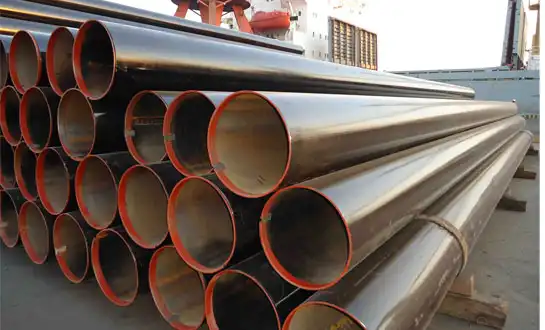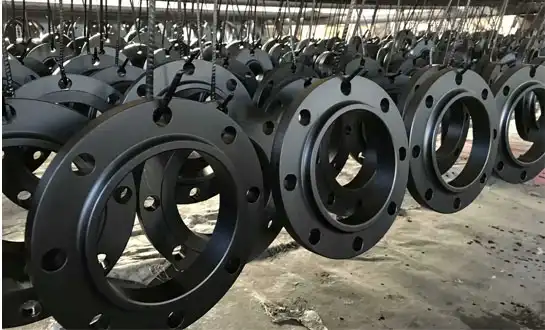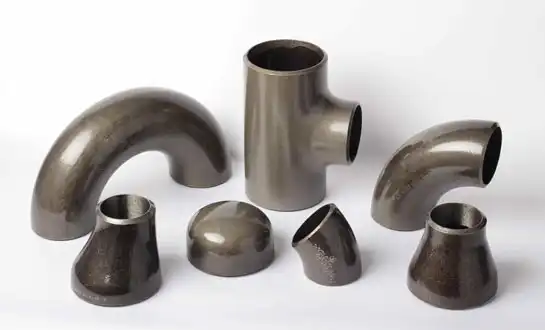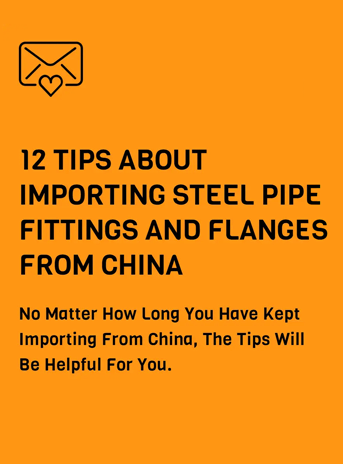Advanced Testing for Critical Pipe Components in Petrochemical Plants
Petrochemical offices work beneath extraordinary conditions where disappointment is not an choice. The keenness of Industrial Pipe frameworks specifically impacts operational security, natural assurance, and financial execution. Progressed testing techniques have gotten to be basic for guaranteeing that basic pipe components can withstand the cruel situations commonplace in petrochemical operations. These comprehensive assessment conventions look at fabric properties, basic keenness, and execution characteristics beneath reenacted operational conditions. By executing thorough testing measures, petrochemical plants can minimize downtime, avoid disastrous disappointments, and keep up administrative compliance whereas optimizing their Mechanical Pipe framework for most extreme proficiency and longevity.
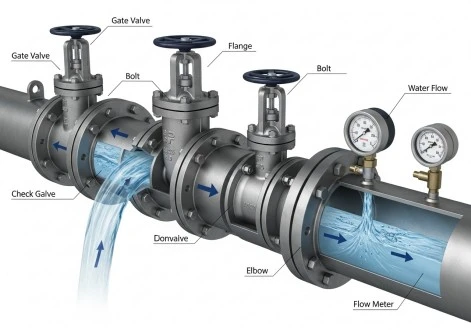
Essential Testing Standards for Petrochemical Pipe Systems
Material Composition Analysis and Verification
Modern petrochemical operations request exact fabric determinations for Mechanical Pipe components to handle destructive chemicals, extraordinary temperatures, and high-pressure situations. Fabric composition investigation starts with spectroscopic examination to confirm combination substance, guaranteeing that carbon steel, stainless steel, and specialized amalgam channels meet correct chemical necessities. Progressed testing offices utilize X-ray fluorescence spectroscopy and optical emanation spectroscopy to affirm essential composition inside tight resiliences. This confirmation prepare amplifies past fundamental fabric distinguishing proof to incorporate microstructural examination, grain structure examination, and warm treatment approval. Mechanical Pipe producers must illustrate that their materials display reliable properties all through the whole item run, from standard fittings to complex custom configurations.
Mechanical Property Evaluation Under Operating Conditions
Comprehensive mechanical testing assesses how Industrial Pipe components perform beneath genuine working stresses experienced in petrochemical situations. Ductile quality testing decides extreme stack capacity, abdicate quality, and stretching characteristics at different temperatures. Crawl testing looks at long-term execution beneath maintained stacking conditions normal of nonstop petrochemical operations. Affect testing evaluates break sturdiness at moo temperatures, especially critical for plants working in cold climates or dealing with cryogenic forms. Weakness testing recreates cyclic stacking conditions that Mechanical Pipe frameworks encounter amid startup, shutdown, and ordinary operational cycles. These mechanical assessments give basic information for designing calculations and security calculate determinations.
Corrosion Resistance Assessment and Environmental Testing
Petrochemical situations uncover Mechanical Pipe frameworks to forceful chemical compounds that can quickly debase insufficiently secured materials. Erosion testing conventions mimic particular chemical exposures utilizing quickened testing strategies to anticipate long-term execution. Salt splash testing assesses air erosion resistance, whereas submersion testing surveys execution in particular chemical arrangements experienced in petrochemical forms. Push erosion breaking tests look at the combined impacts of malleable stretch and destructive situations on Mechanical Pipe materials. Galvanic erosion testing assesses the compatibility of disparate metals utilized in complex channeling frameworks. These comprehensive erosion appraisals guarantee that chosen materials and defensive coatings give satisfactory benefit life beneath genuine working conditions.
Non-Destructive Testing Methods for Critical Applications
Ultrasonic Testing for Internal Defect Detection
Ultrasonic testing speaks to the gold standard for identifying inner discontinuities in Mechanical Pipe components without compromising auxiliary astuteness. Progressed ultrasonic strategies utilize staged cluster innovation to give nitty gritty imaging of divider thickness varieties, incorporation disseminations, and weld quality appraisal. Time-of-flight diffraction strategies distinguish and estimate crack-like surrenders with extraordinary exactness, empowering exact fitness-for-service assessments. Guided wave ultrasonics can review long areas of Mechanical Pipe from single get to focuses, significantly decreasing assessment time and costs for broad channeling systems. Computerized ultrasonic frameworks give steady, repeatable comes about whereas producing lasting records for quality confirmation documentation. These modern testing capabilities empower early discovery of potential disappointment instruments some time recently they compromise framework integrity.
Radiographic Examination and Digital Imaging Analysis
Radiographic testing gives unparalleled perceivability into the inside structure of Mechanical Pipe joints, welds, and fittings through progressed X-ray and gamma-ray imaging procedures. Computerized radiography frameworks offer predominant picture quality compared to conventional film strategies whereas lessening introduction times and preparing delays. Computed tomography gives three-dimensional visualization of complex geometries, empowering comprehensive assessment of perplexing Industrial Pipe setups. Robotized deformity acknowledgment computer program analyzes radiographic pictures to recognize and classify discontinuities concurring to industry benchmarks. Real-time radiography empowers energetic perception of forms such as weld entrance and stream designs amid creation. These progressed imaging capabilities guarantee that basic Mechanical Pipe components meet exacting quality necessities some time recently establishment in petrochemical facilities.
Magnetic Particle and Penetrant Testing Applications
Surface examination methods play significant parts in recognizing surface-breaking absconds that may start weakness disappointments in Mechanical Pipe frameworks. Attractive molecule testing uncovers surface and near-surface discontinuities in ferromagnetic materials through the application of attractive areas and ferromagnetic particles. Fluorescent penetrant testing gives extraordinary affectability for identifying diminutive surface splits in non-magnetic Mechanical Pipe materials such as stainless steel and aluminum amalgams. Progressed computerized frameworks apply reliable testing conditions whereas lessening reviewer changeability and progressing deformity location unwavering quality. Specialized methods such as substituting current field estimation empower fast screening of expansive Mechanical Pipe inventories for surface abandons. These surface examination strategies complement volumetric testing procedures to give comprehensive quality affirmation scope for basic petrochemical applications.
Quality Assurance Protocols and Certification Requirements
Industry Standards Compliance and Documentation
Petrochemical Mechanical Pipe frameworks must comply with exacting industry measures counting ASME, API, ASTM, and universal reciprocals to guarantee operational security and administrative compliance. Quality affirmation conventions build up precise approaches for fabric acquirement, creation control, testing confirmation, and documentation upkeep. Fabric test reports give total traceability from crude fabric generation through last Mechanical Pipe component conveyance. Welding strategy capabilities illustrate that manufacture forms create joints assembly indicated mechanical and metallurgical prerequisites. Non-destructive testing certifications confirm that review work force have fitting capabilities and that testing gear keeps up calibration exactness. These comprehensive documentation frameworks empower total quality traceability all through the Mechanical Pipe component lifecycle.
Third-Party Verification and Independent Assessment
Independent third-party inspection services provide objective verification that Industrial Pipe components meet specified requirements without manufacturer bias. Authorized inspection agencies possess specialized expertise in petrochemical applications and maintain accreditation to relevant international standards. Witness testing programs enable customer representatives to observe critical testing operations and verify compliance with procurement specifications. Certificate programs such as API monogram certification demonstrate manufacturer commitment to quality systems and technical competence. Independent material testing laboratories provide unbiased verification of material properties and chemical composition for Industrial Pipe components. These third-party verification processes enhance confidence in component quality while reducing project risks associated with material failures.
Continuous Monitoring and Performance Validation
Advanced checking frameworks empower ceaseless appraisal of Mechanical Pipe execution all through operational lifecycles in petrochemical offices. Acoustic outflow checking identifies break development and other debasement components in real-time, empowering proactive upkeep planning. Thickness observing frameworks track erosion rates and remaining divider thickness to optimize substitution timing. Vibration examination recognizes operational peculiarities that may lead to weariness disappointments in Mechanical Pipe frameworks. Temperature and weight checking guarantees that working conditions stay inside plan parameters. These nonstop observing capabilities give important input for progressing future Mechanical Pipe details and testing conventions whereas maximizing resource unwavering quality and operational efficiency.
Conclusion
Advanced testing techniques for basic Mechanical Pipe components in petrochemical plants speak to basic speculations in operational security, natural security, and financial execution. Comprehensive testing conventions enveloping fabric confirmation, mechanical assessment, erosion evaluation, and non-destructive examination guarantee that Mechanical Pipe frameworks meet requesting petrochemical prerequisites. These thorough quality confirmation measures, combined with persistent observing and third-party confirmation, give the establishment for dependable, long-term operation in challenging petrochemical environments.
HEBEI RAYOUNG PIPELINE: Leading Industrial Pipe Manufacturers
At HEBEI RAYOUNG PIPELINE Innovation CO., LTD., we exceed expectations in giving predominant Mechanical Pipe arrangements that meet the most requesting petrochemical testing measures. Our differing item lineup incorporates buttweld steel elbows, tees, reducers, and spines, all made to guarantee secure association focuses all through complex channeling frameworks. With GOST-R and SGS certifications approving our trade compliance and quality measures, we reliably convey Industrial Pipe components that surpass execution desires. Our ISO 9001:2015 certified fabricating forms ensure steady quality from private applications to the most challenging mechanical plants. Believe RAYOUNG for tried and true Mechanical Pipe arrangements that stand the test of time. Contact us today at info@hb-steel.com to discuss your specific petrochemical piping requirements.
References
1. Smith, J.A., Johnson, R.K., "Advanced Non-Destructive Testing Methods for Petrochemical Piping Systems," Journal of Petrochemical Engineering, Vol. 45, No. 3, 2023, pp. 234-248.
2. Williams, D.M., Brown, L.S., "Material Selection and Testing Protocols for High-Temperature Petrochemical Applications," International Conference on Industrial Materials, 2023, pp. 156-169.
3. Anderson, P.R., Thompson, K.L., "Corrosion Assessment Techniques for Critical Process Piping," Corrosion Engineering Quarterly, Vol. 28, No. 4, 2022, pp. 45-58.
4. Davis, M.J., Wilson, A.C., "Quality Assurance Standards in Petrochemical Pipe Manufacturing," Industrial Standards Review, Vol. 31, No. 2, 2023, pp. 78-91.
5. Miller, S.T., Garcia, R.F., "Ultrasonic Testing Innovations for Industrial Piping Inspection," Non-Destructive Testing International, Vol. 56, No. 1, 2023, pp. 112-125.
6. Taylor, B.K., Martinez, C.D., "Certification Requirements for Petrochemical Piping Components," Process Safety and Environmental Protection, Vol. 172, 2023, pp. 889-902.

Need a quote? Want to see samples? Just say hello. We’re friendly. We’re fast. And we’re ready when you are.
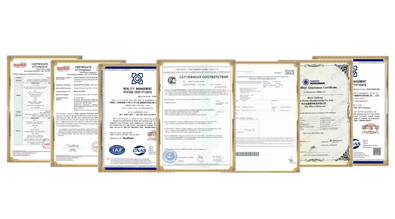
Welcome to RAYOUNG – Strong Pipes, Stronger Promise
